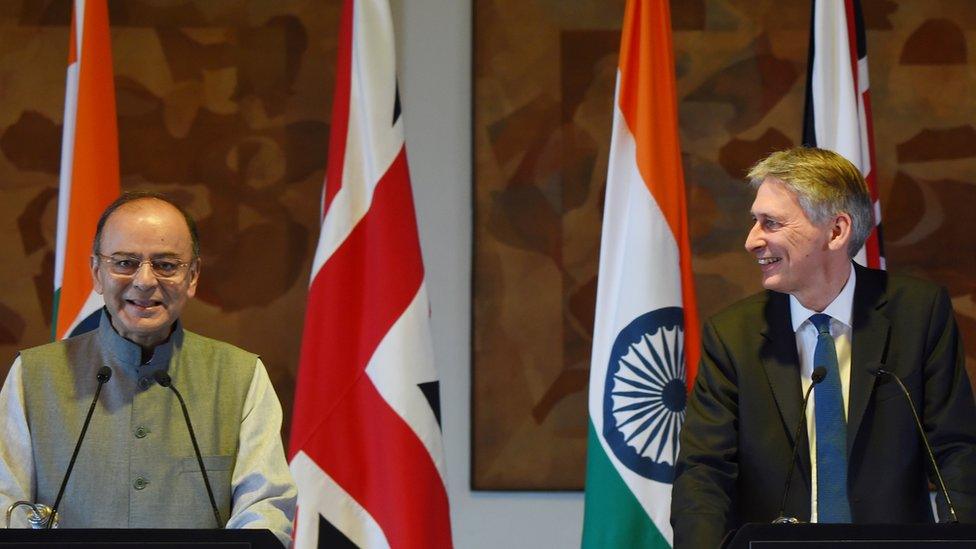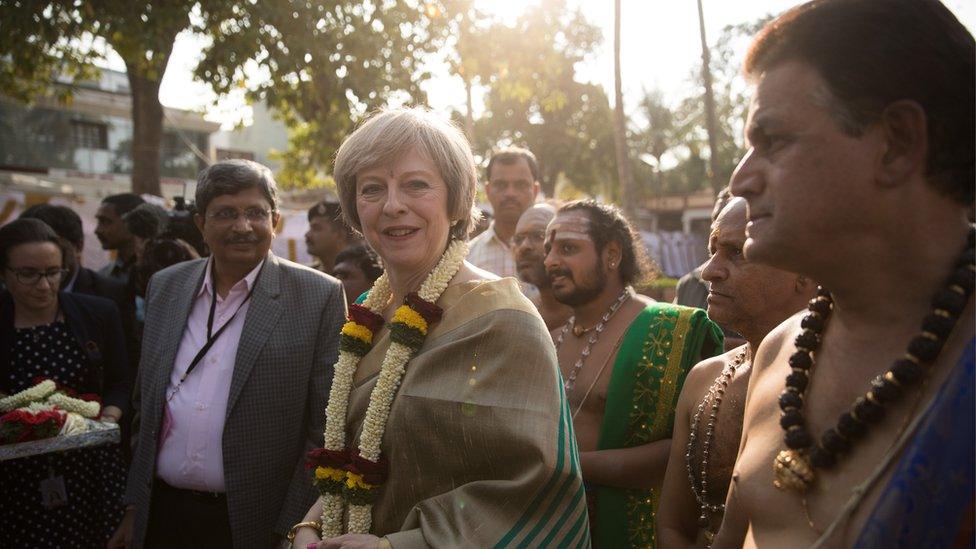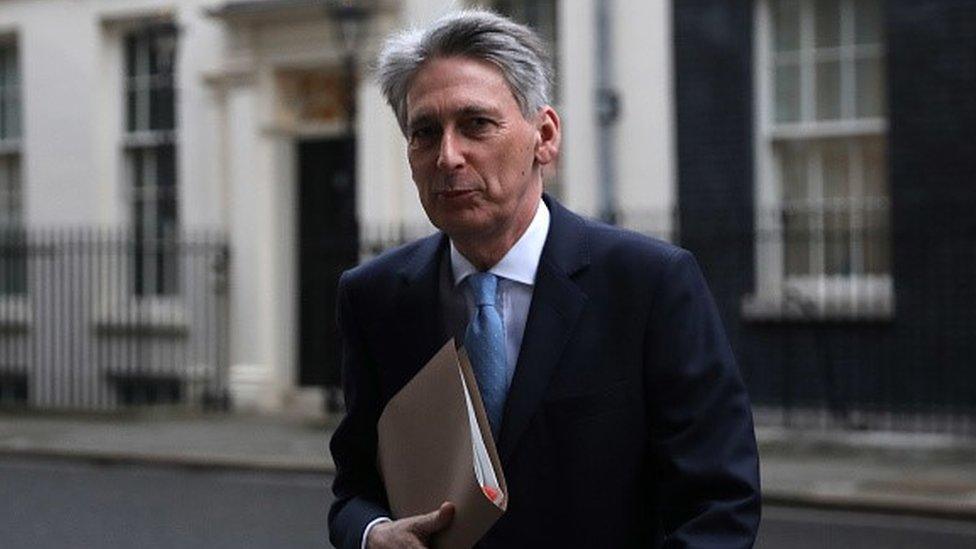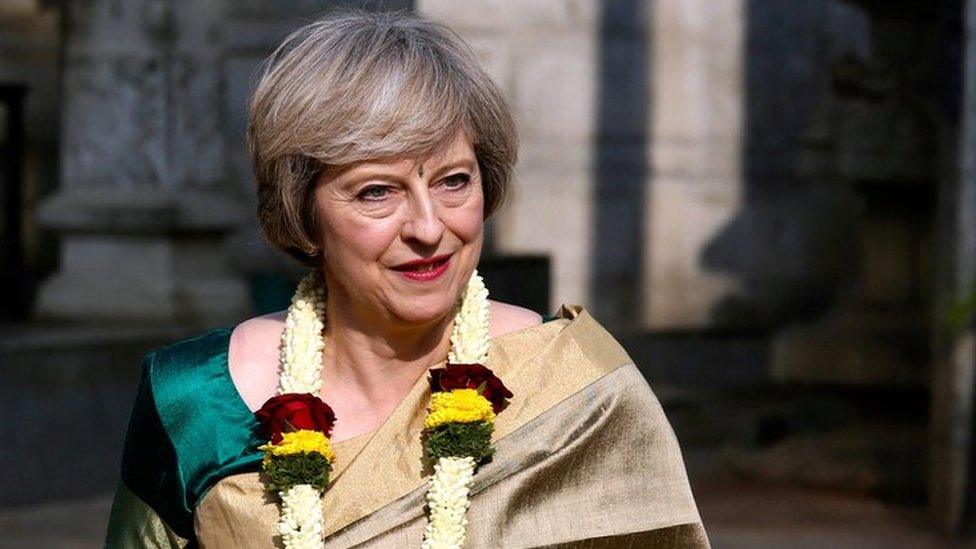Empire 2.0? Banging the drum for UK business in India
- Published

Charm offensive: British Chancellor Philip Hammond and Indian Finance Minister Arun Jaitley
There's a scene in Gurinder Chadha's new British-Indian production, Viceroy's House, that offers a particularly revealing insight into the sentiments some Indians had about colonial rule during the last days of the British Raj.
"Well, whatever their differences are, all Indians have one thing in common," drawls Lord Mountbatten, played by Hugh Bonneville, in the film. "They can't wait to get rid of us."
That's hardly the sentiment that UK Chancellor Philip Hammond and the bevy of British businesses accompanying him to India want to inspire in their counterparts in Delhi and Mumbai.
And to be fair, the British delegation has been received with the utmost fanfare and respect, despite the reservations many in India still have about colonial rule.
The legacy of the British Raj in India is something millions of Indians are still deeply uncomfortable about. Whether that warm welcome Mr Hammond and his entourage have received will translate into increased trade is still very much in doubt.
'Jewel in the crown'
Data from the Observatory of Economic Complexity from 2015 shows that the UK is not on the list of the top five countries that India buys goods and services from, and it's the last on the list, external of the top five nations India sells to.
That's one of the reasons the UK is sending some of its heaviest hitters to India. The former colony in many ways is still seen as the proverbial jewel in the crown.
Britain wants to sell more of the UK's financial services to India. The chancellor's message, external is to "make in India, finance in the UK''.
Financial technology will also be high on the agenda. Mr Hammond will claim that the UK and the City of London are "perfectly placed" to be India's partner of choice to raise the finance it needs to deliver on its infrastructure investment plans and offer the services of British fintech firms, as India tries to move to a less cash-dependent society.
Mr Hammond calls this "a relationship of equals" and, admittedly, there are a lot of synergies between the two nations.
But there will also be challenges.
Visa tensions
Immigration is the key focus for Delhi, as it is pushing for more visas to be issued for Indian nationals working in the UK.

Prime Minister Theresa May went to India for her first trip since taking office last year
About 60% of all work visas issued by the UK go to Indian nationals, according to the British government - but visas were one of the major sticking points on British Prime Minister Theresa May's visit to India last year.
Mr Hammond, speaking to Indian start-up entrepreneurs in Delhi's posh Khan market on Tuesday, said that the UK wants the "the best and brightest" of India. What that means in practice, though, will be down to the fine print.
India is arguably among the most important trading partners that the UK has in Asia in a post-Brexit world.
But the UK's strategy of striking trade deals with Commonwealth countries - dubbed Empire 2.0 by some in London - may well be a hard sell in this former colonial nation.
Follow Karishma on Twitter, external.
- Published2 April 2017

- Published13 November 2016
